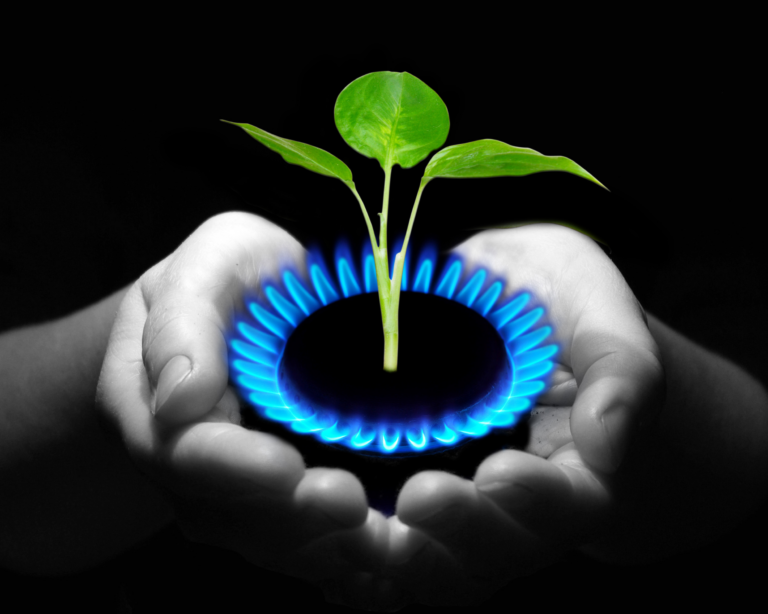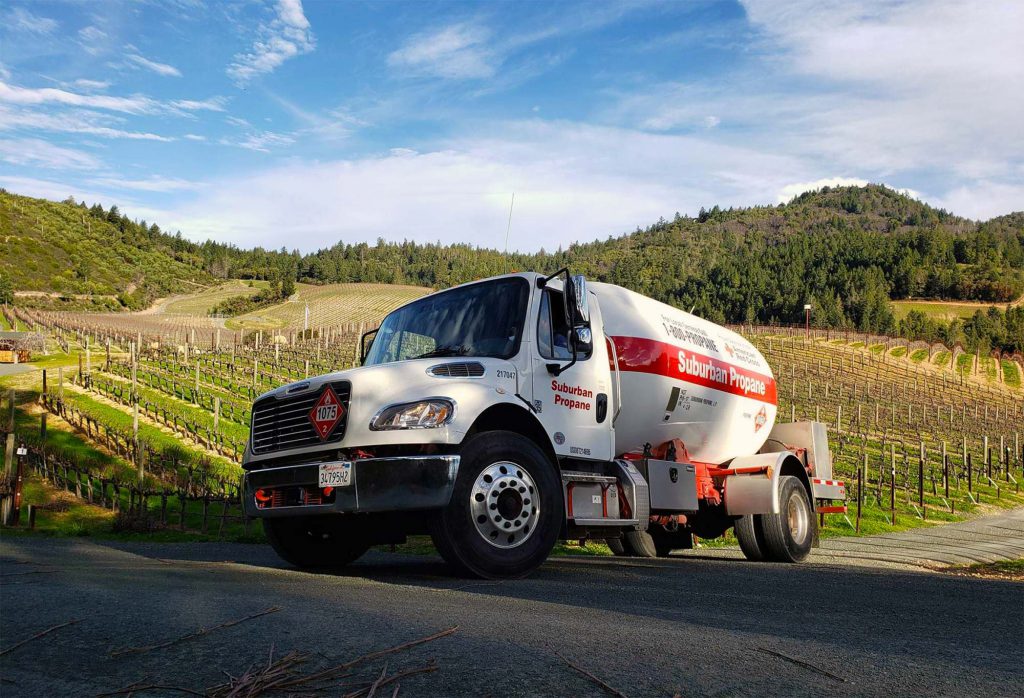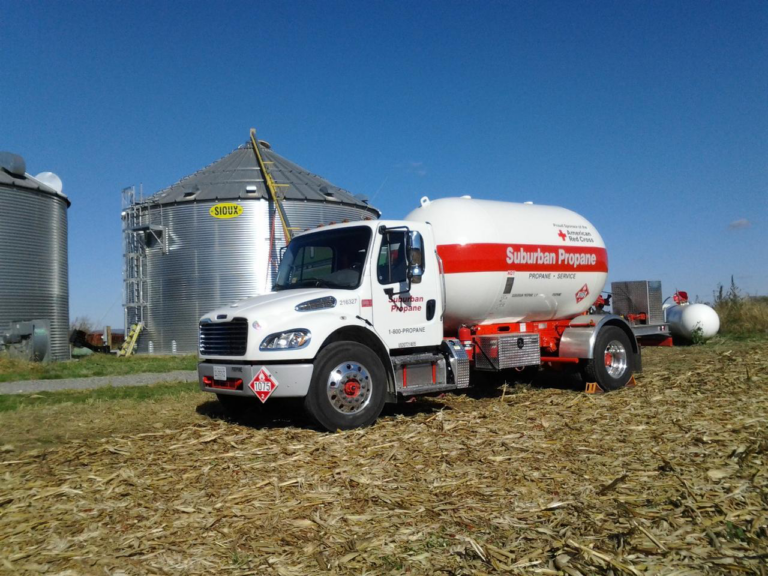Natural Gas vs Propane – What’s the Difference?

A lot of individuals tend to mix up natural gas vs propane, which are both common fuels used for heating, cooking, and powering appliances. However, the reality is that these two fuels differ in several ways when it comes to their energy efficiency, storage, environmental impact, and other characteristics. In this article, we will explore some of the key differences in terms of natural gas vs propane.
Sourcing & Production
Natural gas is a fossil fuel that is found in underground reserves which gets accessed by on and off-shore drilling, and extracted from those reservoirs. Meanwhile, propane is a byproduct of natural gas processing and crude oil refining. When discussing the production of natural gas vs propane, both are required to be processed and treated for use, however, the storage and distribution will affect the accessibility and delivery to customers across the country.
Storage, Transportation & Delivery
To compare natural gas vs propane, Natural gas is distributed to homes and businesses through a network of interstate pipelines. Residential and commercial properties require a stationary connection to a gas line to receive the energy to power and heat the space. This may be problematic for individuals who are located in areas without access to a main pipeline.
In contrast, propane is a hydrocarbon gas that is liquefied through compression and stored in tanks, and when released, propane vaporizes into a gas. Because propane is stored in tanks or cylinders, it’s easy to transport. This is a convenient solution for people without access to main gas lines – typically in rural or remote areas, where propane tanks are installed either above or underground as the power supply and propane get delivered. Simultaneously, due to the portability of propane, it’s often utilized as a reliable fuel source for a variety of applications.
Cost & Efficiency
There are several variables to consider when determining the cost of natural gas vs propane. If you’re looking at just the dollar value, then generally natural gas may be cheaper depending on where someone lives. However, these two fuels are measured differently – propane is measured in gallons, and natural gas measures in cubic feet or cubic meters.
One large difference between natural gas vs propane to consider is propane has a higher energy content per unit volume than natural gas, aka it produces twice as much heat for the amount which makes propane more efficient for heating and cooking. However, propane is an incredibly versatile energy source that suits needs beyond home heating, cooking, and powering of appliances. It’s utilized in a variety of industrial applications, and construction, found in restaurants and the hospitality industry, and even powers workplace machinery like forklifts and fleet vehicles. Propane satisfies numerous needs all while being cleaner and safer for the environment.
Emissions & Environmental Impact
When looking at natural gas vs propane, propane is a greener alternative because of its efficiency, non-toxicity, and low emission output. Natural gas releases less carbon dioxide when burned compared to propane, but it’s important to look at the other gas emissions that occur. When burned, natural gas produces more methane which is highly toxic and hazardous to the climate than propane. When compared to other fuel emissions – like diesel-powered forklifts, propane produces significantly less carbon dioxide, approximately 94% less according to PERC.
Propane is recognized as a clean, green fuel by the EPA and Clean Air Act. Compared to other fossil fuels, propane has a smaller carbon footprint. It serves as a cleaner energy source that emits fewer harmful pollutants such as carbon dioxide and carbon monoxide, thus contributing less to air pollution and the acceleration of climate change. Plus, it’s non-toxic and won’t contaminate air, soil, or water, making propane an eco-friendly and sustainable energy source. While both of these fuels are available domestically and currently in abundance – propane is a renewable source which is critical at a time when fossil fuels are non-renewable and depleting.
Ultimately, the natural gas vs propane decision depends on a variety of factors including geographic location, cost, and energy needs. However, it’s important to factor in the direction we’re heading in terms of reducing emissions and having access to renewable energy sources. Overall propane stands out as a more environmentally friendly option than other fuel types, including natural gas, due to its high efficiency, lack of toxicity, and minimal emission production. It is a cleaner, green fuel and renewable propane is available which acts as a bridge fuel as the industry works to decrease our dependence on fossil fuels while reducing our carbon footprint and moving toward a more sustainable future.
Share this story, choose your platform:
Related Posts
Peace of mind
with dependable
fuel supply, when
you need it

COMMUNITY
700+
Locations providing exceptional service to local communities across 42 states
EXPERIENCE
95+
Years serving our customers and their communities. Customer satisfaction since 1928
CUSTOMER SERVICE
3,300+
Dedicated employees ready to assist you with quality service for all your fuel needs
RELIABILITY
24/7/365
We are here for you with customer service representatives standing by to take your call
Please call us 24/7/365 at 1-800-PROPANE



